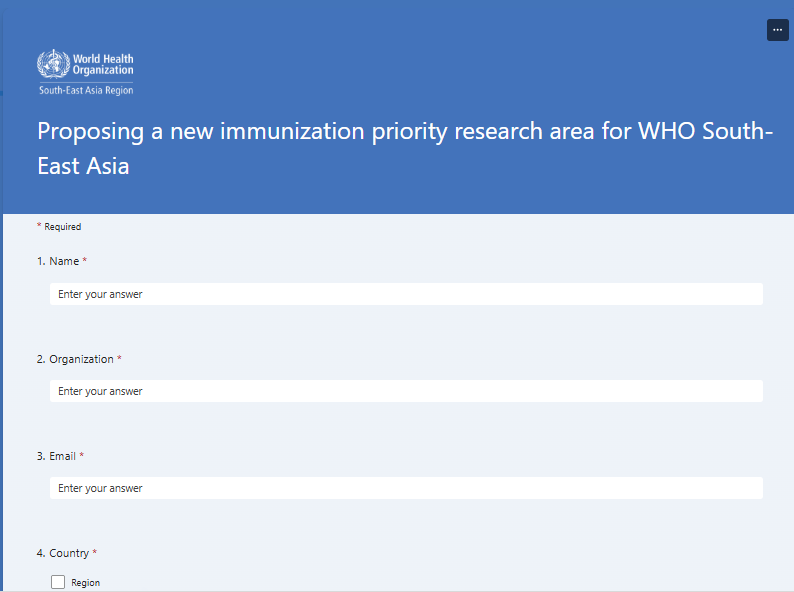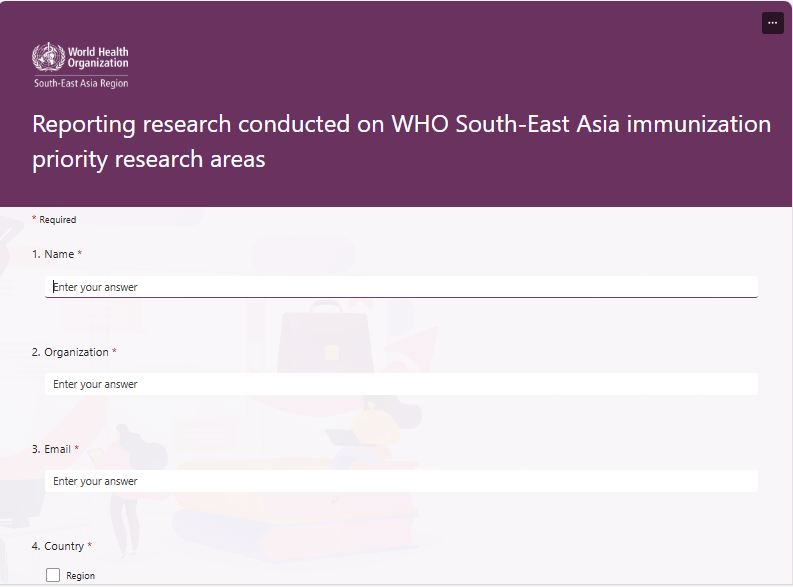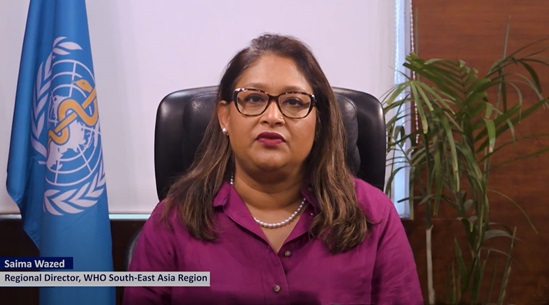Immunization and vaccine research area priorities for strengthening the immunization programmes in the WHO South-East Asia Region (2025–2030)
Over the past decade, the role of research in vaccines and immunization has become increasingly critical in combating infectious diseases and safeguarding public health amid complex challenges such as demographic changes, humanitarian crises, population migrations, and a heightened risk of emerging infectious diseases. Given limited resources and the multitude of competing priorities, prioritization is vital to ensure that the most pressing challenges are addressed through context-driven research. By focusing on areas with the highest potential for meaningful outcomes, it enhances the relevance and utility of research findings. Immunization research area prioritization will also provide a strategic framework to guide decision-making, enabling research efforts to be focused, efficient, and capable of driving long-term improvements in immunization and public health.
Immunization research area prioritization exercise
With this background, the WHO South-East (SE) Asia Region, in collaboration with the INCLEN Trust International (INCLEN), undertook immunization research area priority setting exercise. This regional exercise aligns with the Immunization Agenda 2030 (IA2030) and offers a strategic framework to direct resources toward high-impact research that can strengthen policy, program and vaccine introduction. This research priority setting activity was undertaken with the objective to identify immunization and vaccine priority research areas to strengthen the delivery of immunization programme and the safe and effective introduction of new and underutilized vaccines in the SE Asia Region. The overall approach followed the WHO's guidance on the research priority-setting process, including the Plan, Implement, Publish and Evaluate (PIPE) approach. We adopted the Child Health and Nutrition Research Initiative (CHNRI) priority setting method exercise.
-priority-setting-method-exercise.png?sfvrsn=2cb3f1fb_1)
A total of 1347 research ideas/ questions (RIs/RQs) were obtained across 13 research avenues from more than 65 experts from the Member States, representatives from Ministries of Health, Members of various expert committees/ groups, academia, programme managers, development partners, and the WHO Regional and country offices. The 1347 RIs/RQs were consolidated into 25 immunization research priorities.








/teams/communicable-diseases/immunization-vaccines-development/dignitaries-at-inaugural-session.tmb-549v.png?sfvrsn=54860726_1)

/campaigns/world-immunization-week/2025/vaccine-are-one-of-the-best-investment-choices-governments-can-make-to-keep-their-people-healthy-and-safe.tmb-549v.png?sfvrsn=50d1b743_1)
/campaigns/world-immunization-week/2025/by-continuing-to-invest-in-vaccines--we-can-help-build-a-world-where-fewer-children-than-ever-die-of-preventable-diseases.tmb-549v.png?sfvrsn=64c29267_1)